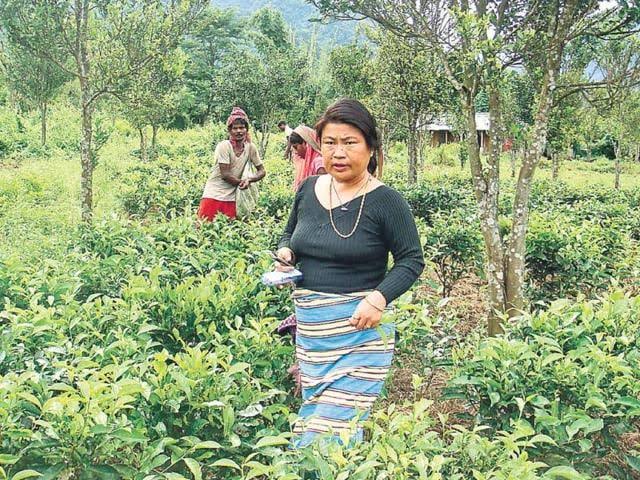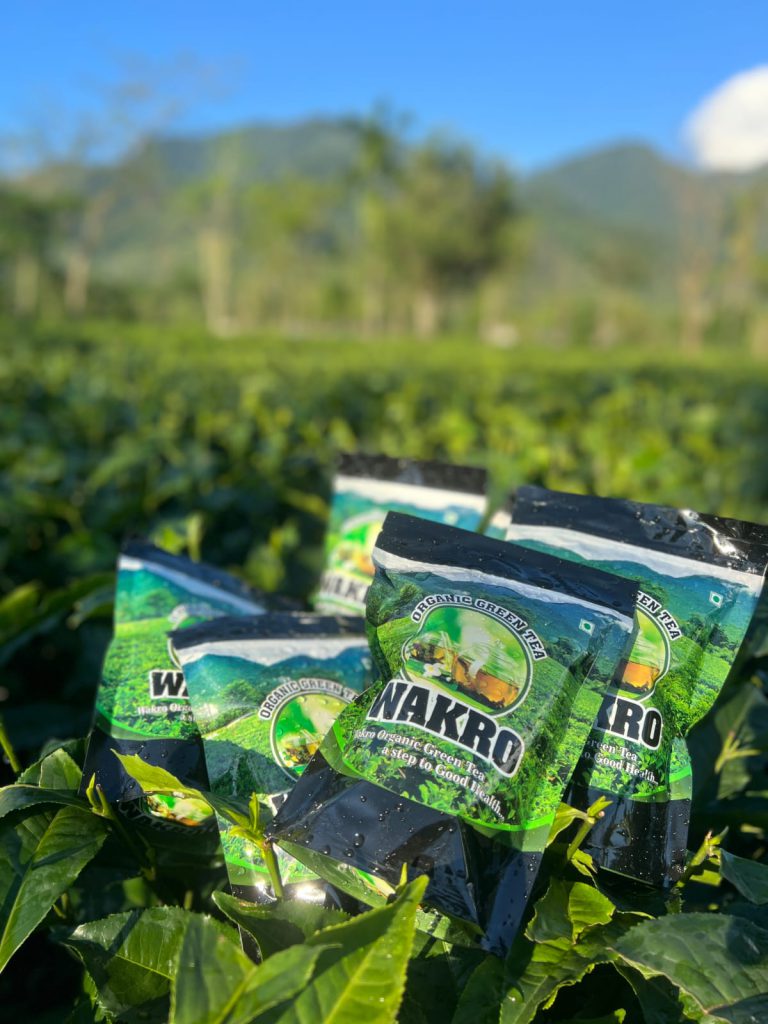Spread the love
It is the cup that cheers that is slowly replacing opium in a remote area in Lohit district of Arunachal Pradesh.
And the credit for all this goes to a woman Basamlu Krisikro, a resident of the remote Wakro village in Lohit district, who started tea plantation fifteen years ago.

It is difficult to believe for this to happen in Lohit and Anjaw districts of Arunachal Pradesh which is dominated by opium cultivation. Though authorities have taken action by periodic destruction of crops, the task is too big to stop the thriving opium trade.
"Since there are no forward linkages for the farmers agricultural produces of this region, they tend to grow opium which is a source of immediate income for them and sells at a high rate. This in turn damages the health, income and livelihood of the local people by making them prey to it's menacing addiction" Basamlu Krisikro(50) told BusinessNortheast.
The only way to stop this is to uproot it from it's source. We started providing tea saplings to the poppy farmers, providing them with financial and technical aids. Today we have 15 such families who have left opium cultivation and have opt for organic tea cultivation. This idea was successful as we bought their green leaves at a good rate. This motivates them to be fully engaged in it and maintain the quality of our tea" she said.
She said they themselves wanted to leave opium cultivation but lack of alternate income forced them in it.
"If there was a sustainable income, our people would never intentionally rob their own society of its welfare" she said.
Her reason to go for tea plantation was purely personal. In 2009, when her mother was detected with lung cancer doctors advised a regular dose of organic green tea for its health benefits and antioxidant properties.
A post graduate from Delhi University, Krisikro, had to go to neighbouring Assam often to fetch organic green tea. It was then that she decided to experiment and grow it in her own backyard. Today, many families in Lohit district who were earlier cultivating poppy have followed her path.
Tea cultivation has been prevalent in some parts of Arunachal Pradesh for quite some time but the Wakro Model is an unique one with an important social message.
Krisikro and a medical practitioner, Nayil, took it upon themselves to convince people that tea plantation could be an alternative source of sustainable income. They also motivated opium cultivators to replace their fields with small-scale tea plantations and it did wonders.
The initiative worked and within a year, a dozen of them turned into small tea growers.
Wakro Tea which started in a one hectare tea plantation in 2009 has now extended to 17 hectares now.
Wakro Green Tea has set up a tea processing unit so that the new tea planters in Wakro could supply their produces easily.
The Wakro organic tea farm is now under incubation at Arunachal Pradesh Innovation & Investment Park (APIIP). IIMCIP has signed a MoU with Government of Arunachal Pradesh to develop a vibrant entrepreneurial ecosystem in the state and facilitate the aspiring entrepreneurs with comprehensive support and nurturing towards reinforcing a self-reliant society and a sustainable economy. The first cohort of 31 entrepreneurs has been selected for incubation.

Wakro Organic Tea farm has introduced a Farmers Producer Company model and 584 farmers have already registered under Lohit Organic Farmers Producer Company Limited (LOFPCL). This was developed to integrate farmers under one umbrella with the hope to eradicate the opium menace from society and save future generations.
"People who have tasted our tea have also ordered from parts of Bihar, U.P., Kolkata, Mizoram, Manipur and Nagaland" she said.
Officials say that when Wakro Organic Tea farm was incubuated at APIIP, good things started happening. Wakro Organic Green Tea was selected to represent and participate in the Dubai Expo 2020. It was been nominated at PRIF - Pernod Ricard India Foundation which aims to invest in empowering women entrepreneurs and provide them with a powerful opportunity to catalyze not only their economic and social empowerment but essentially that of the society at large.
During a meeting with their mentor, Wakro Organic Green Tea discussed how it was facing an issue where a copycat brand [WAKRO LEAF ORGANIC GREEN TEA] had come into the market.
" WAKRO has made their product a staple today. It is unfair that this copycat should profit parasitically off of the efforts and reputation of WAKRO but more importantly, because of the inferior quality of the copycat, the startup has also been receiving complaints about the change in taste and this was affecting sales" officials said.
They were advised on how to proceed legally with trademark infringements and interestingly the copycat company has changed its name.
The tea farm needs promotion and support for tea cultivation in the district. They want government assistance for planting material – High Quality Saplings, Transfer of technologies: R&D, training programmes, exposure visits of farmers etc, market connects for the produce and financial assistance in acquiring a dehydration facility.
Wakro has also been nominated at PRIF - Pernod Ricard India Foundation is an organization which aims to invest in empowering women entrepreneurs and provide them with a powerful opportunity to catalyze not only their economic and social empowerment but essentially that of the society at large. They are committed to involve, enable and empower organizations that are out to change the status quo.
ALSO READ : Arunachal Pradesh Minister stresses on Tourism, Horti sectors for economic prosperity